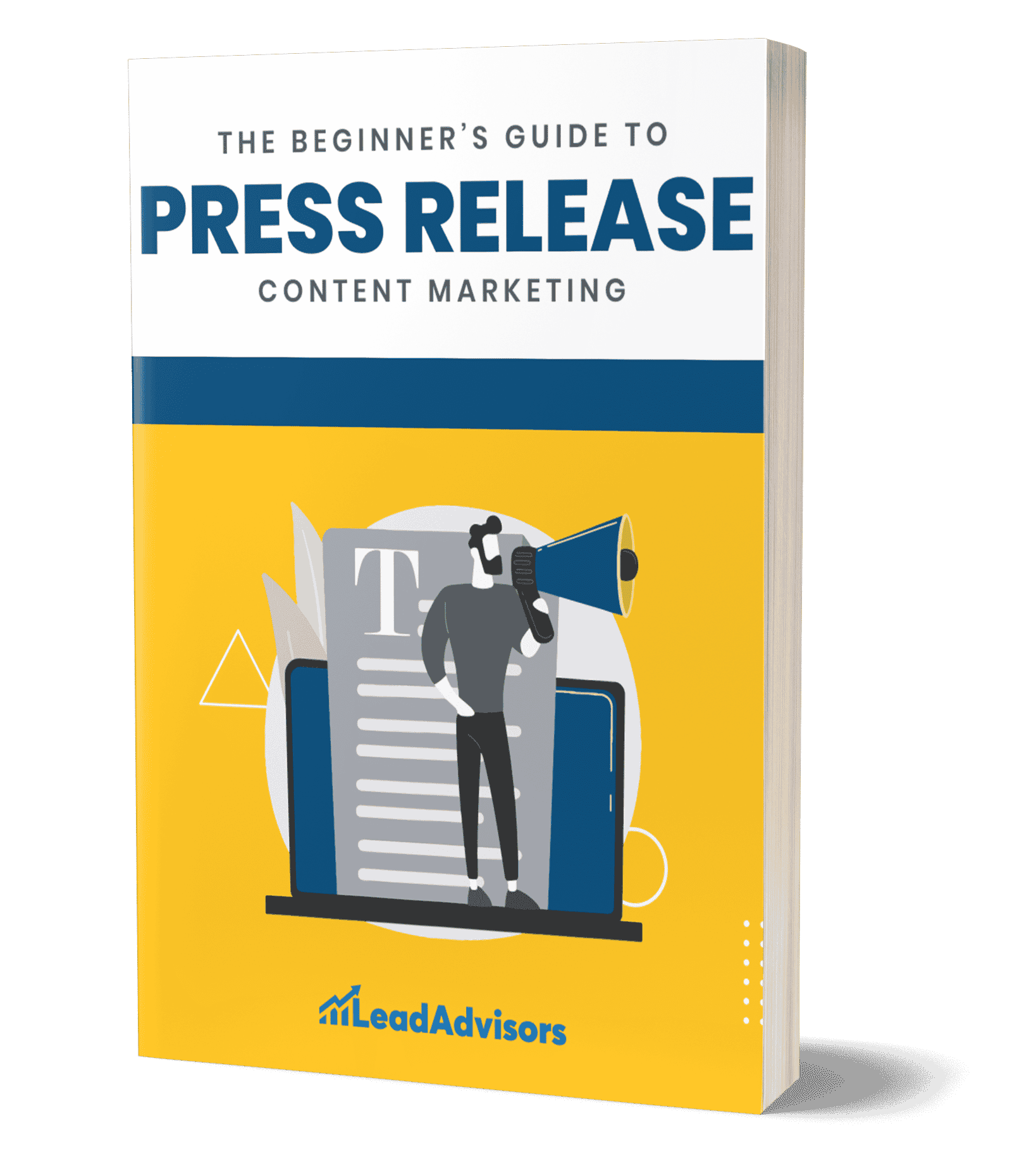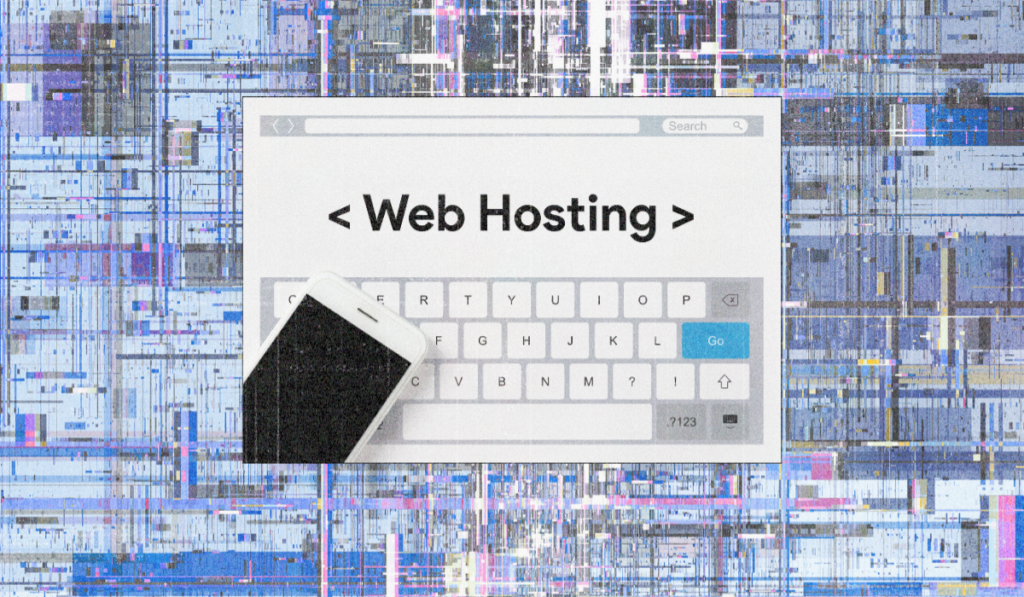In 2025, social media advertising isn’t just optional – it’s the growth engine for businesses. With over 5 billion users online, platforms like Instagram for Business give brands unmatched precision, speed, and scale to reach the right audience.
Unlike organic posts that often get lost, Instagram ads help you drive measurable results, from brand awareness to conversions.
This guide will show you how to master paid social, optimize your ad creative, and build campaigns that win on Instagram and beyond.
What Is Social Media Advertising?
Social media advertising is a type of digital advertising that you pay for. In this type of advertising, you put your content, product, or service in front of a social media user on channels such as Facebook, Instagram, LinkedIn, TikTok, and X.
These ad campaigns target specific audiences according to demographics, user interests, behaviors, real-time/historical online actions, and more.
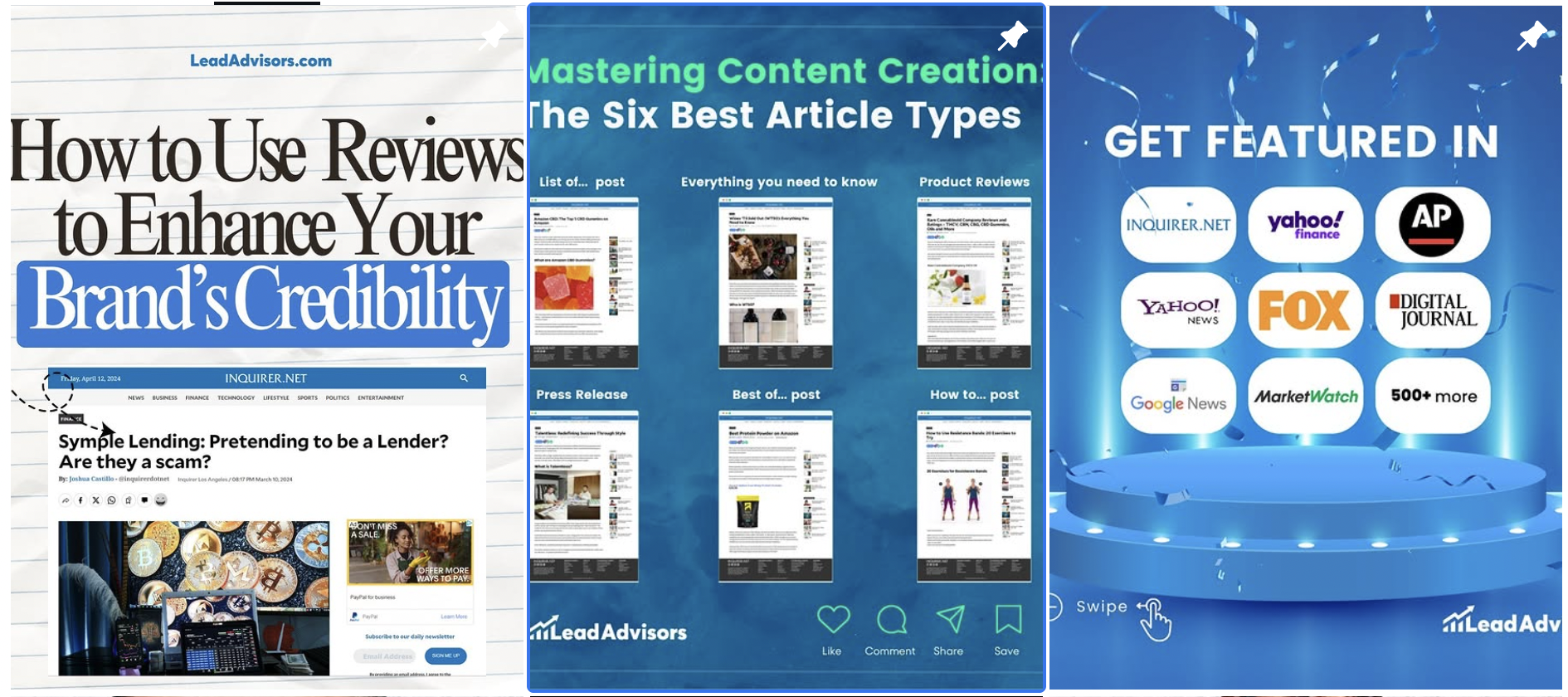
Over the last five years, this tactic has transformed from driving organic content to more advanced AI-powered targeting and automation platforms.
Modern platforms use machine learning to deliver the right content to the right people at the right time – often before they even recognise that they need it!
As opposed to conventional media (print, TV), in social media advertising, you get:
- Advanced audience targeting & lookalike audiences
- Instant comments, shares, and reactions
- Real-time adjustments and optimizations
- High-end formats such as video ads, carousels, and interactive stories
Another major difference is that advertising on social media has flexible costs. You can begin with a low budget and increase it when you get results.
Whether you’re promoting a brand awareness initiative with Facebook ads or rolling out an Instagram ad for a product drop, there’s an answer for every budget and objective.
Why Social Media Advertising Works
Social media advertising is effective because it connects with your audience where they already spend their time: scrolling, sharing, and searching through apps.
A brand cannot connect with and extend its presence to the millions of users active on Facebook, Instagram, TikTok, LinkedIn, and even the X platform.
Paid social media advertising is less expensive and more scalable than typical advertising of print, radio, and TV. You can create a successful campaign with a small budget and then grow as you see your return on investment. Standard pricing models include:
- CPC: (Cost-Per-Click) – You pay when someone clicks on your ad
- CPM (Cost-Per-Thousand Impressions) – You get charged for every 1,000 impressions
- CPA (Cost-Per-Acquisition) – You pay per conversion.
Beyond being affordable, targeting is where media buys on social media really take the cake. Use case: Narrow your target audience. With it, you can target more specifically:
- Demographics (age, gender, location)
- Psychographics (interests, values)
- Behaviors (purchase history, engagement)
Platforms like LinkedIn ads are incredibly potent for B2B campaigns, with filters based on job title, industry, and company size.
And social media ads are not like old-time media – they operate in real time. You can track reach, clicks, conversions, and cost metrics on the spot – and adjust your campaigns on the go. Marketers have various tools – including image posts, video ads, collection ads, and lead forms – to drive results across most platforms, which offer diverse ad formats.
Still skeptical? You need only look at successful social media advertising examples from various industries – from viral TikTok drops to high-converting LinkedIn ads – to see how people like you drive real business results.
Components of a High-Performing Social Ad Campaign
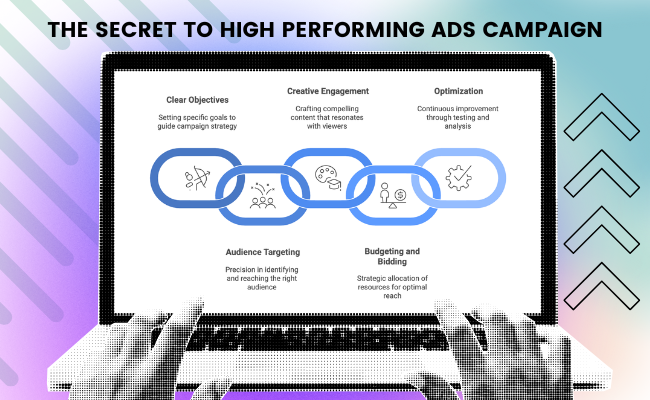
Set clear objectives first.
The best social media ad campaigns start with a goal. Is it awareness, engagement, sales, lead generation, or website traffic that you’re after? Understanding this up front informs creative, targeting, and bidding strategy downstream. Even the most polished ad creative can fall flat if there is no clear purpose behind it.
Audience targeting turns strategy into precision.
Today’s social media platforms offer targeting capabilities beyond those of old-fashioned advertising. From lookalike audiences to geofencing, you can pinpoint who sees your ad.
Go one layer deeper with psychographic data – interests, values, and lifestyle choices – and your messaging will strike a personal chord. Social media advertising statistics show just how powerful granular targeting can be.
Creative drives engagement
The good kind of creativity is far more than eye candy. It narrates, communicates a message, and sparks action – all in a matter of milliseconds. Whether you are creating image ads, video ads, carousel ads, or story ads, they are all about being mobile-first, platform-specific, native, and stemming from the right campaign objective.
Even better? Integrate UGC to offer a dose of authenticity that does not stick out weirdly in your feed. Ultimately, dynamic ads may also boost performance by delivering an experience that resonates with each viewer.
Budgeting and bidding shape your reach.
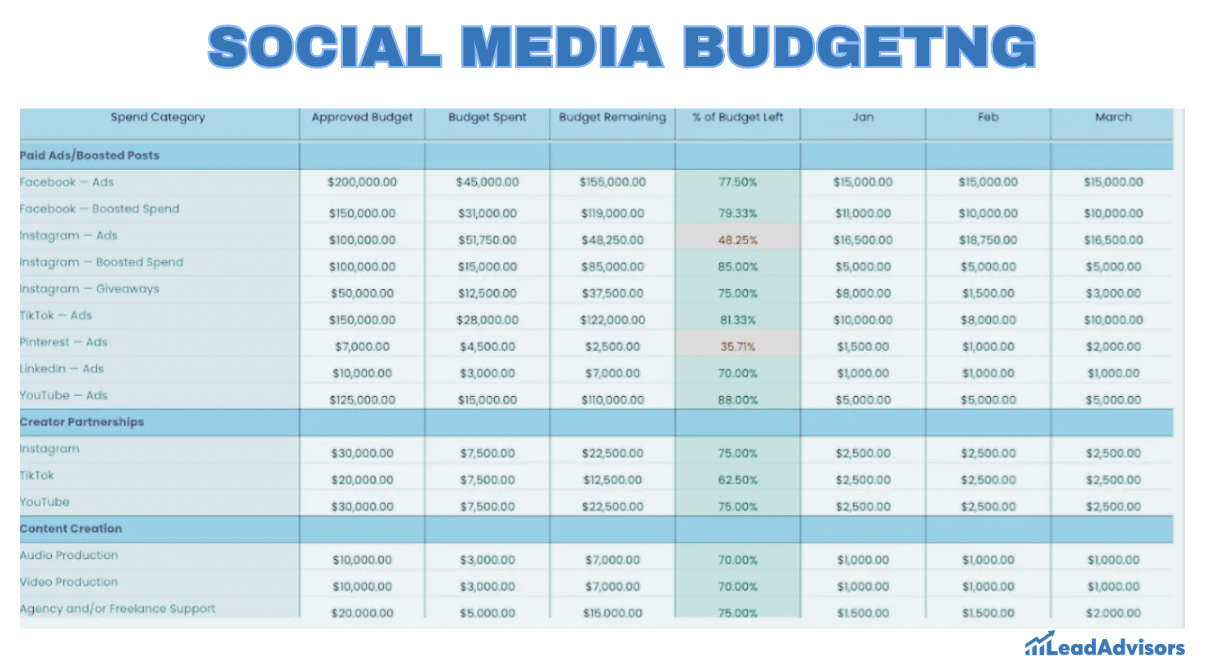
A clever ad spend doesn’t mean spending an arm and a leg. It’s about the budget for what your campaign is trying to achieve and channeling expectations.
Lower the funnel, CPC (cost-per-click) is best for traffic/leads, CPM (cost-per-thousand impressions) is great for brand awareness, and CPA (cost-per-acquisition) is perfect for sales. The secret is to monitor the cost of your social media ads every day and make changes when necessary.
Optimization is where the magic happens.
A campaign is not the end – it’s a beginning. You keep things fresh with continuous A/B testing, retargeting, and creative rotation, ensuring you’re never far from falling behind ad fatigue and keeping performance high. Intelligent marketers treat every campaign like a living organism – that is monitored, measured, and optimized.
Social Media Platforms: Which One Is Right for You?
Selecting the right platform is crucial to your digital marketing overall strategy. Every channel appeals to various groups of the audience, maintains different ad formats, and provides estimates for SMM campaign costs. Below, we examine the leading platforms today and their role in a marketing plan.
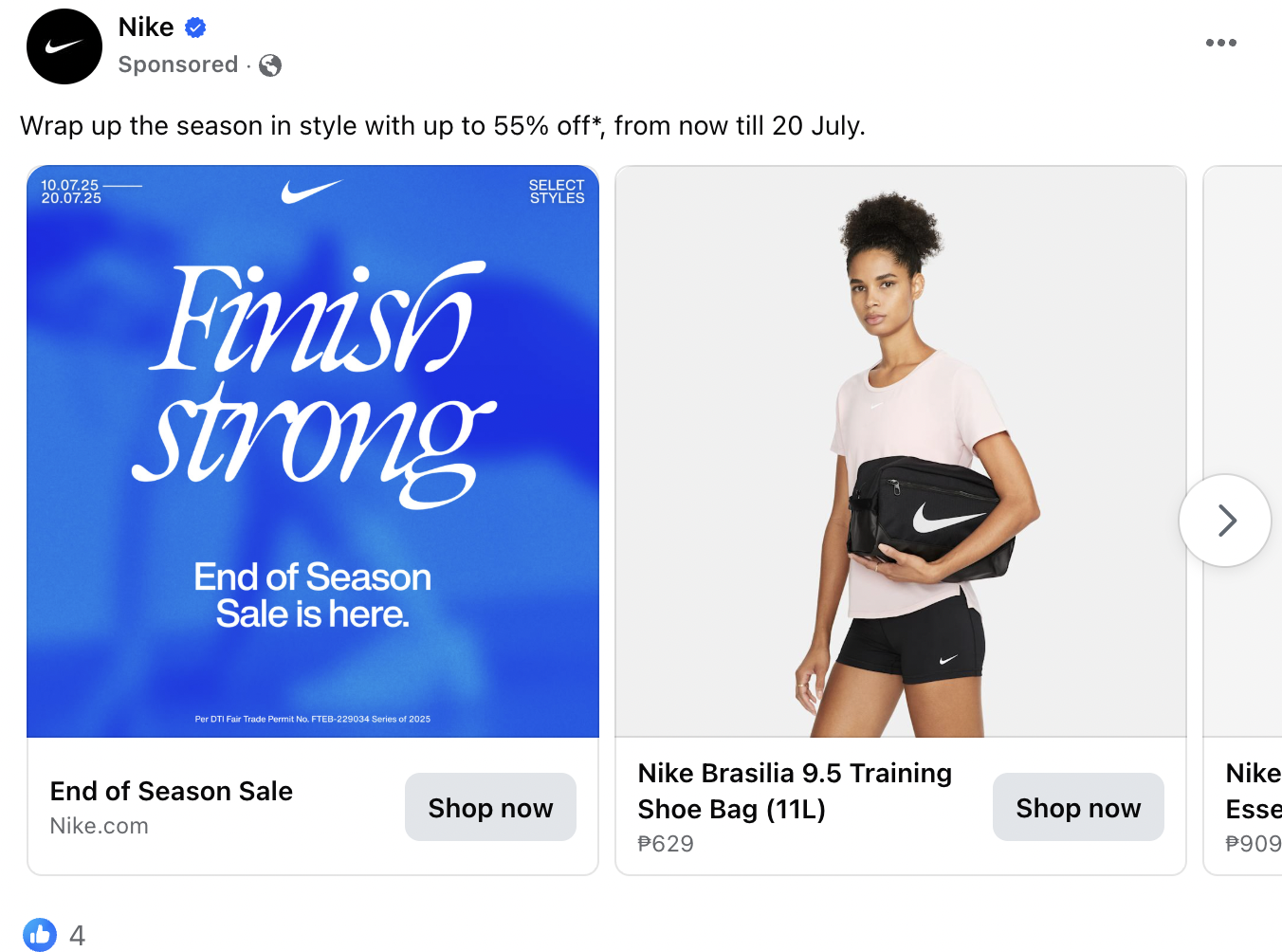
Facebook remains one of the pillars of social media marketing, as more than 3 billion people are active on It. It’s great for B2C and B2B brands, and effective targeting is available through Facebook Ad Manager.
The best-performing formats are image ads, video ads, carousel ads, and lead forms. Facebook is second to none when it comes to retargeting and platform creation, but it increasingly faces competition from more video-focused apps. You can anticipate CPC between $0.50 and $2.00, and CPM will be from $7 to $13.
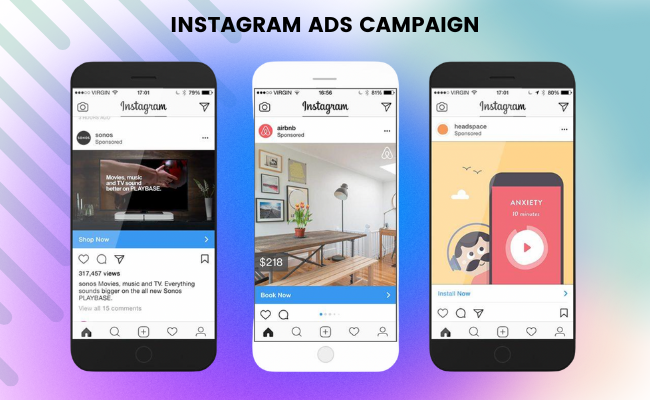
A platform of Meta, Instagram is lifestyle-driven, focusing on product discovery and user-generated content. With more than 2 billion, it targets younger users, specifically Millennials and Gen Z.
Instagram encourages feed posts, Stories, Reels, and interactive shopping capabilities. Image ads and Reels do particularly well here. It’s rich in aesthetics and brand storytelling, but conversions may trend pricier. CPC usually averages $0.70–$1.50, while CPM ranges from $5 to $10.
TikTok
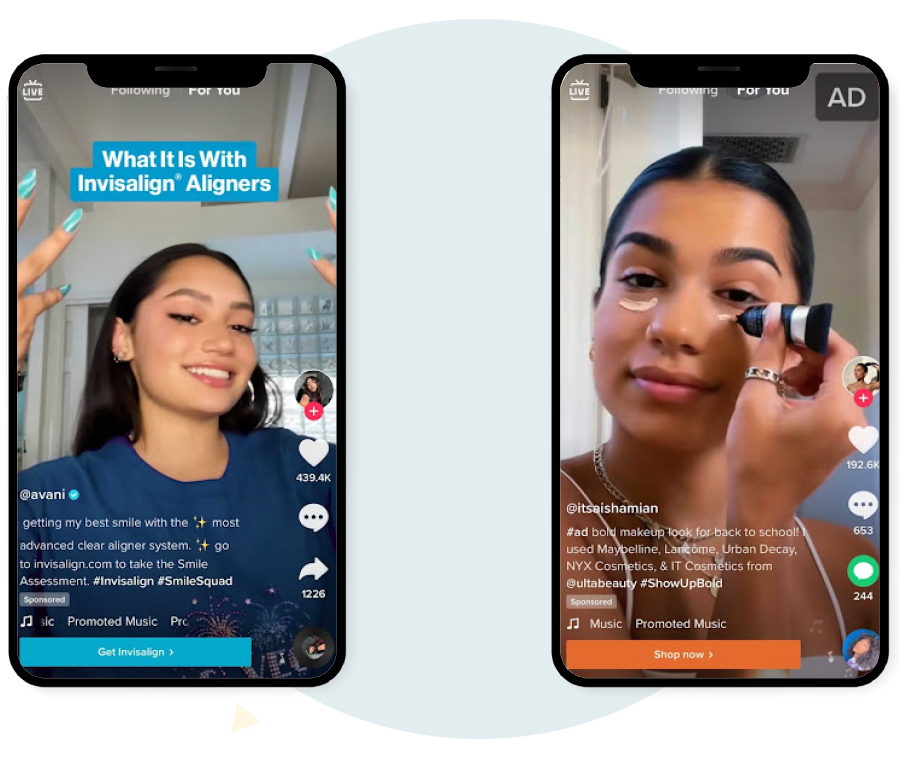
TikTok is the darling of short-form video and among Gen Z’s favorite platforms. Its algorithmic extent grants social media ad campaigns wild-fire potential, assuming the creative works.
Examples of these formats are full-screen video ads, branded hashtags, or the Spark Ads with which user-generated content can be spread. It’s powered by entertainment, so if you want ads that work, they will live in native content. Still relatively new for advertisers, the average CPC is ~$1.00, and the CPM tends to hover between $6 and $12.
YouTube
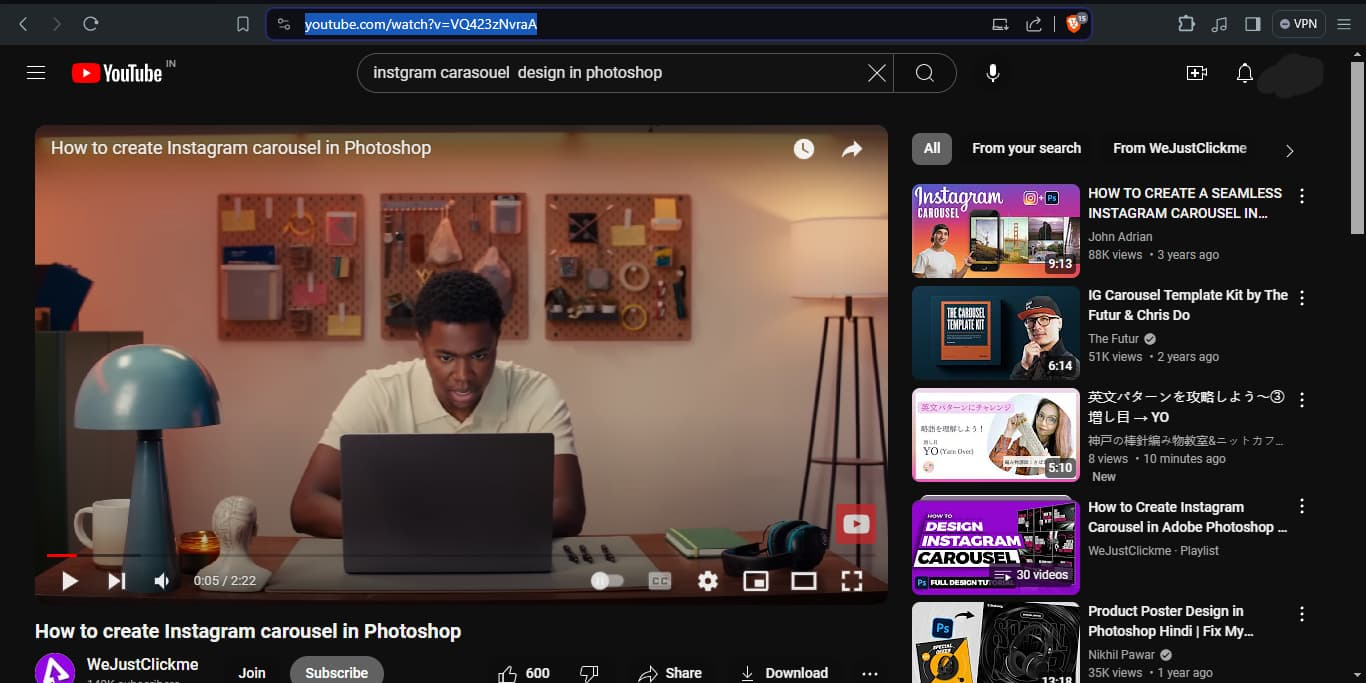
YouTube justifies those questions as the second-largest search platform in the world (behind only Google) and gives a massive reach to video-first brands. It’s ideal for instructional content, explainer videos, and product reviews. Not surprisingly, pre-roll advertising, in-stream video, and bumper ads do the best.
YouTube ads get a boost from intent-driven searches but need a bigger creative lift. It’s excellent for long-form engagement but not the best for impulse conversions. CPC typically ranges from $0.10 to $0.3,0, and CPM values can be $9 to $15 if you have the correct targeting.
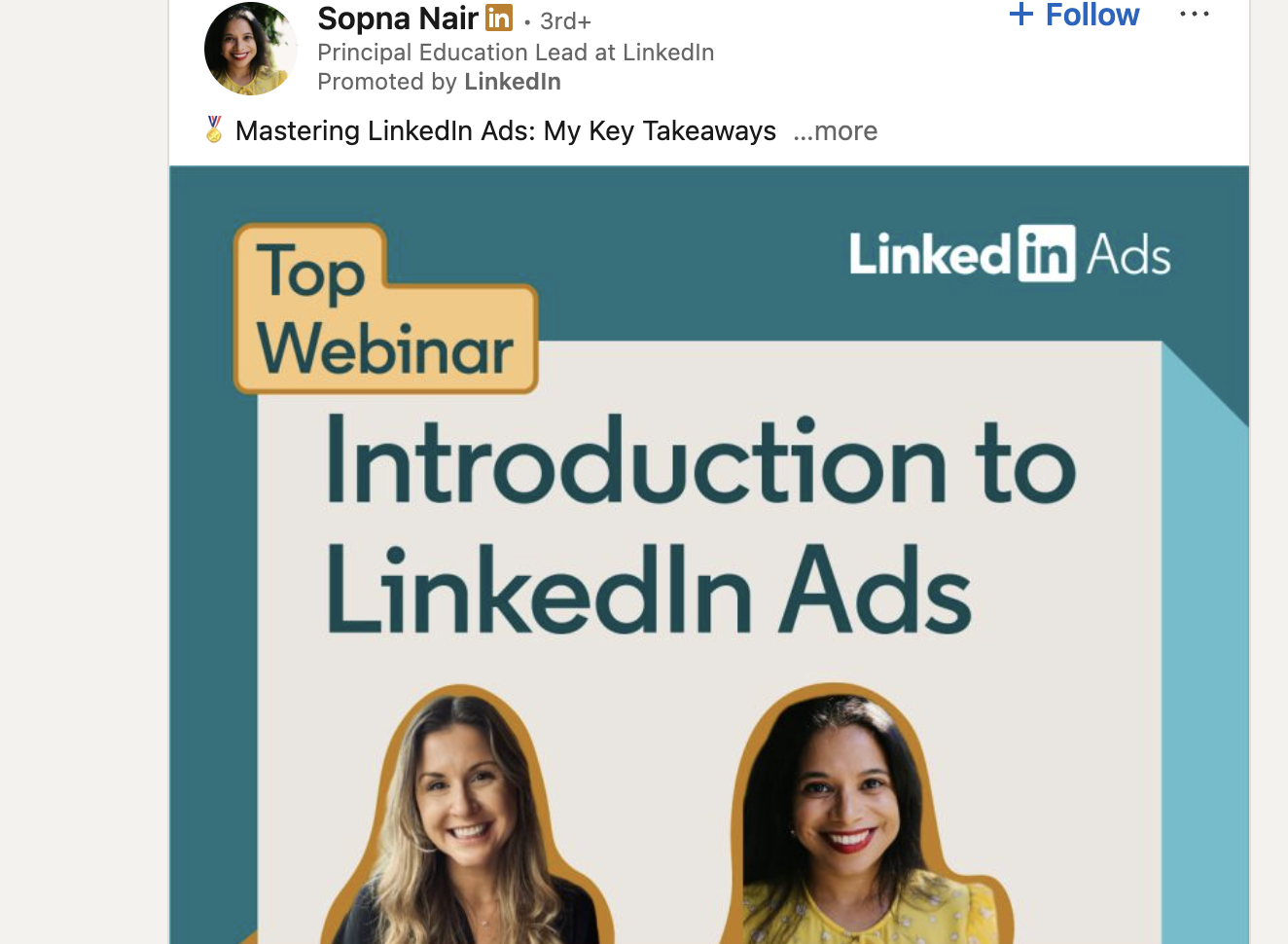
B2B advertisers use LinkedIn as their go-to. And with more than 950 million professionals, it allows for ultra-specific targeting such as job title, company size, and industry. Would definitely recommend it for thought leadership, lead gen, and high ticket offers.
It’s smaller than Meta’s properties, but it’s more targeted and further down the funnel. Ads include sponsored content, message ads, and dynamic carousels. It can cost more – CPCs are frequently in the range of $4 to $8, and CPMs can top out above $30 – but high-quality leads can make the investment worth it.
Twitter/X
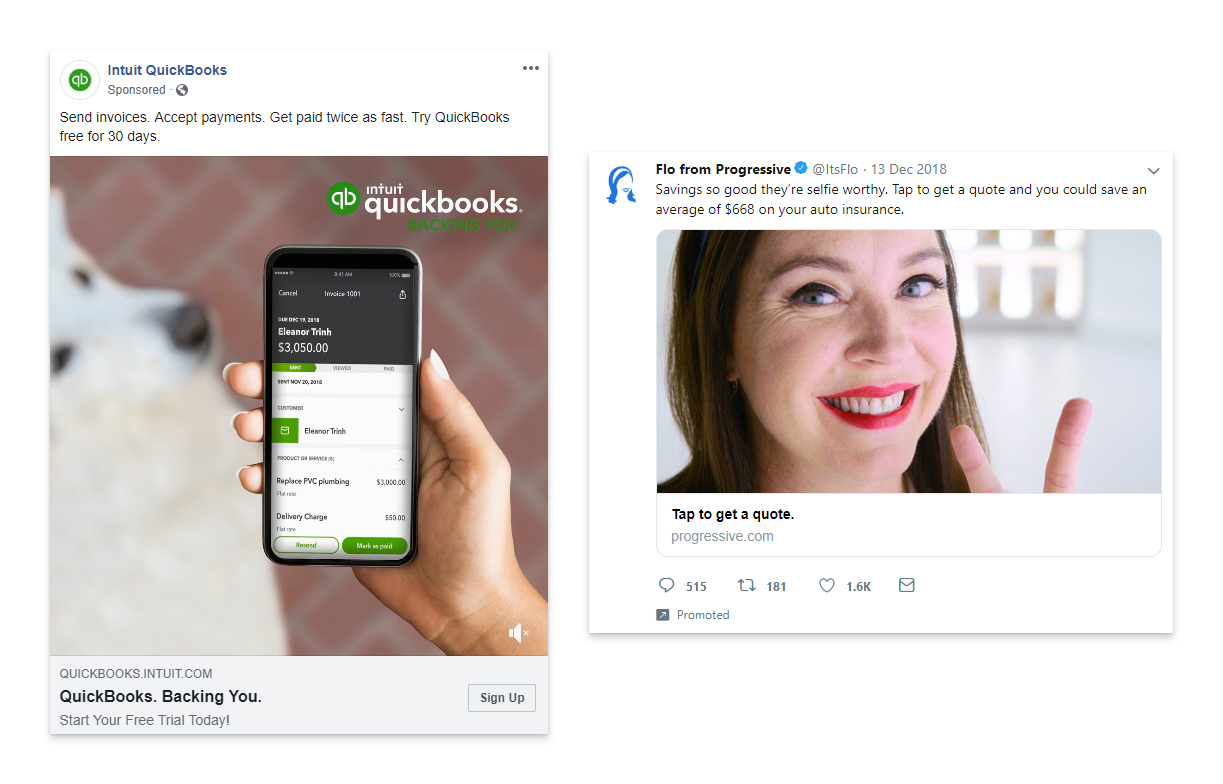
X (formerly Twitter) is a real-time, text-driven platform built to connect audiences to the topics influencing the world right now. It is heavily used for news, entertainment, and brand personality. Advertisements consist of promoted tweets and trends as well as video.
It’s highly interactive, but the perception of brand safety has dipped, which can trouble some advertisers. CPCs: $0.30 – $1.20CPMs: $6 – $10. Its power is immediacy and conversation, not as much granularity in targeting as Meta or LinkedIn.
Snapchat
Snapchat is great for kids and captures the short attention span of the young and those young at heart. With over 750 million active users, Snapchat holds a younger user base and specializes in vertical video. The platform caters to speed, ephemeral content, and AR experiences.
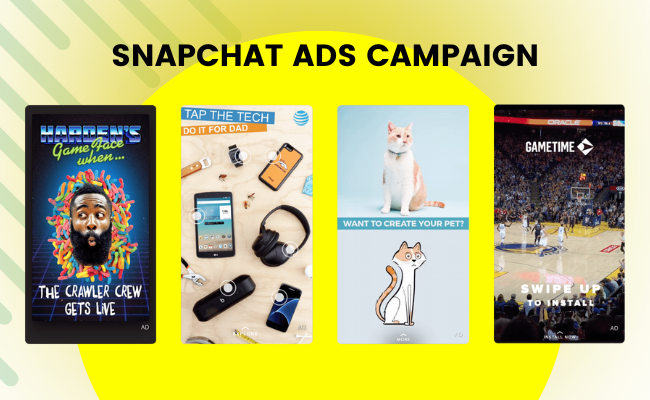
Snap Ads, Story Ads, and sponsored lenses drive engagement with the notoriously hard-to-get generation. They’re not necessarily great for longer message-driven campaigns, but they’re doing well for general awareness campaigns. Plan for an average $0.50 to $1.00 CPC and a $5 to $9 CPM.
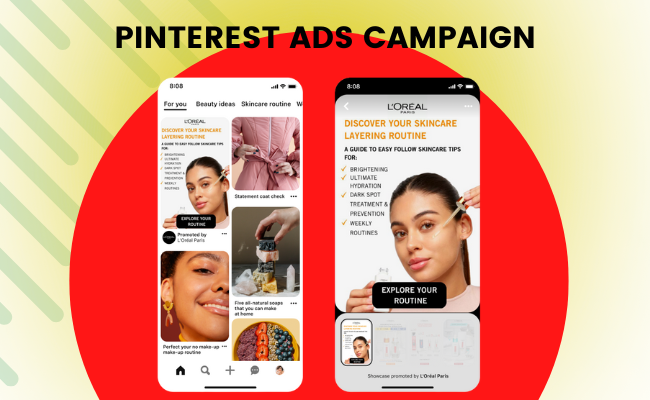
Pinterest combines inspiration and purchase intent, so it’s suited to ecommerce brands, lifestyle niches, and DIY projects. Most of its users are female, and their interests include home decor, fashion, and wellness. Promoted Pins and shopping ads are most effective here, particularly Pin ads with great graphics.
Pinterest facilitates downstream actions via a visual search component. CPC is $0.10 – $1.50, and CPM is $2-$5, so when it comes to product discovery, Pinterest is one of the most efficient platforms available.
Social Media Advertising Costs in 2025
Understanding the actual cost of running ads across social media networks is critical to your overall budgeting and performance strategy. Whether you’re focused on lead generation ads, website traffic, or brand awareness, each platform varies in pricing based on your campaign objectives, ad quality, and audience targeting.
Budget models typically fall into two categories: daily budgets (set amounts per day) and lifetime budgets (total spend over a campaign duration). Depending on whether you run short, time-sensitive promotions or long-term awareness campaigns, both approaches can work.
Here’s a breakdown of average CPC (Cost Per Click) and CPM (Cost Per Thousand Impressions) by platform in 2025:
| Platform | Avg. CPC (USD) | Avg. CPM (USD) | Best for | Popular Formats |
| $0.50 – $2.00 | $7 – $13 | Broad targeting, retargeting | Carousel, Image, Vertical video ads | |
| $0.70 – $1.50 | $5 – $10 | Visual branding, product discovery | Reels, Stories, User-generated content | |
| TikTok | $1.00 – $2.00 | $6 – $12 | Gen Z engagement, influencer content | In-feed, Spark Ads, Branded Challenges |
| YouTube | $0.10 – $0.30 | $9 – $15 | Long-form content, product education | Pre-roll, In-stream, Bumper |
| $4.00 – $8.00 | $30 – $65 | B2B professionals, high-ticket leads | Lead Forms, Carousel, Sponsored Posts | |
| X (Twitter) | $0.30 – $1.20 | $6 – $10 | Real-time updates, brand voice | Promoted Tweets, Video, Trend Takeover |
| Snapchat | $0.50 – $1.00 | $5 – $9 | AR experiences, Gen Z engagement | Snap Ads, Lenses, Story Ads |
| $0.10 – $1.50 | $2 – $5 | Lifestyle brands, ecommerce traffic | Promoted Pins, Shopping Ads |
Several factors influence the final cost of your ad spend:
- Time of year – Expect higher rates during Q4 and major shopping events
- Audience targeting – Niche or high-value segments often cost more.
- Ad quality score – Higher relevance scores typically lead to lower CPC/CPM.
- Platform saturation – On some other social media platforms, competition drives pricing up.
For example, a $1,000 monthly budget could be split based on objectives: $400 toward lead generation ads on LinkedIn, $300 for website traffic on Facebook, and $300 on high-reach Reels ads via Instagram. Platforms with strong audience insights tools – like Meta or Pinterest – can help you fine-tune spending in real time.
Key Metrics to Track & How to Measure ROI
Tracking performance on popular social media platforms like TikTok, YouTube, and Instagram means going beyond surface-level stats. Here’s what to monitor and how to measure success:
- Click-Through Rate (CTR):
Shows how often people click your ad after seeing it. A high CTR typically lowers your CPC (Cost-Per-Click) and signals an effective ad creative. - CPM (Cost-Per-Thousand Impressions):
Tells you how much you’re paying for visibility. Useful when your goal is brand awareness through promoted ads or YouTube advertising. - CPA (Cost-Per-Acquisition):
Measures how much it costs to acquire a lead or customer. Essential for ROI-driven digital advertising campaigns. - Engagement Metrics:
This includes likes, shares, comments, saves, and video views. These are especially important for TikTok ads and Reels, where virality drives reach. - Website Referral Traffic:
Tracks how many visitors come from your ads. Tools like Google Analytics 4 (GA4) help monitor behavior after the click. - Conversions:
Depending on your campaign objectives, it can include leads, purchases, downloads, or sign-ups. Tracking conversions is key to evaluating ROI. - ROI (Return on Investment):
Formula: (Revenue – Ad Spend) ÷ Ad Spend
Shows your net gain from an ad campaign. - ROAS (Return on Ad Spend):
Formula: Revenue ÷ Ad Spend
Example: Spend $1,000 on TikTok ads and earn $4,000 → ROAS = 4:1 (400%). - Tools for Tracking:
- Native dashboards (Meta Ads Manager, YouTube Studio, etc.)
- Google Analytics 4 (GA4) for on-site behavior
- Hootsuite for multi-platform tracking and scheduling
- Platform integrations for custom reports and attribution
Keeping a close eye on these metrics ensures your social media advertising is not just running – it’s working.
Best Practices for Social Media Ad Success
Running paid campaigns on social media networks doesn’t have to be guesswork. With the proper process, you can improve performance, reduce cost, and stay competitive across popular social media platforms like TikTok, Instagram, Facebook, and LinkedIn. Here’s a framework to guide your success:
Step 1: Start with Organic Testing
Test your content organically before you spend a dollar on ads. Post iterations of your message on various channels and monitor engagement. If a post is doing well – getting likes, shares, comments, or saves – “that’s a good sign it is ad-worthy” (or worthy of being made into an advertisement).
These winners are perfect for promoted ads; they’ve already been proven to strike a chord with your audience.
Step 2: Match Creative to the Platform
Not all platforms are created equal. A visual concept that works great on Facebook might not work at all on TikTok. Customize each ad creative for the platform on which it lives. Create vertical video ads for Stories, Reels, and TikTok.
Instead, for LinkedIn, embrace a professional tone and clean visuals. This strategy helps make sure you’re not just showing up, but speaking the native language of the platform.
Step 3: Use Authentic Content from Real People
User-generated content (UGC) and influencer videos will be better than super high-quality creative in 2025. People trust people.
Whether it’s a customer review, behind-the-scenes clip, or influencer endorsement, UGC provides social proof and relatability, particularly on platforms that are visual-first, such as Instagram and TikTok.
Step 4: Refresh Creatives Regularly
Ad fatigue is real. If your audience keeps cutting the same visuals repeatedly, engagement and the Click-Through Ratio will decrease. To keep performance up, rotating creatives should be done every 2 – 3 weeks.
You can update your messaging, swap out visuals, or test new formats, such as image ads, carousels, or motion-based content. Stay fresh in the feed with your brand.
Step 5: Activate Retargeting and Lookalikes
Don’t stop at cold traffic. Leverage remarketing to re-engage with users who have previously interacted with your brand but have not converted.
At the same time, widen your reach with lookalike campaigns tailored by behavior, demographics, and existing customers. These targeting layers are intended to maximize performance or minimize the cost per result.
Step 6: Design for Mobile First
Most social media ads are viewed on mobile devices. This means that your design should focus on speed, vertical layout, big visuals, and tappable CTAs. Employ thumb-friendly text, fast transitions, and vertical framing to ensure that your ad feels like a native message in the feed, not an unwelcome intrusion.
How Brands Are Winning with Paid Campaigns Across Platforms
These real-world examples from top brands show how intentional, creative, platform-native strategies and focused ad objectives can drive exceptional results across social networks.
Dove – #ShowUs Campaign (Instagram & Facebook)
Dove’s #ShowUs campaign leveraged Instagram ads and Facebook to disrupt beauty norms by showing real and diverse women in a combination of professionally photographed images and user-generated content.
The campaign’s sincerity and broad appeal helped us increase the quality and relevance of our ads, driving millions of impressions from platforms teeming with monthly active users in the millions. It is great brand storytelling.
Dollar Shave Club – Minimalist UGC (Facebook Video Ads)
Instead of slick production, Dollar Shave Club embraced humble lo-fi charm. Their Facebook-sponsored ad videos just had real people using the product in simple, funny, phone-filmed cuts.
This gritty UGC style struck a chord with audiences and performed incredibly well, especially for the brand’s small ad budget. Sometimes, authenticity beats polish.
NARS – Facebook ROI Boost
NARS raised the stakes of their e-commerce approach with compelling visuals on Instagram Shop’s shoppable look and feel. For their Instagram ads campaign, they tested high-conversion ad types, such as Image and Carousel ads, to reach customers in seconds from discovery to purchase.
The result? A substantial ROI increase and an accelerated path for transactional ad-based mobile-first consumers.
Pokerist – X Ad Copy Strategy
Pokerist optimized its ad goals by using ad copy that catered to user intent on X (formerly Twitter). They A/B tested conversational CTAs, such as “Ready to bluff your way to the top?” and “Need a new game for your commute?”
This tiny language adjustment boosted our click-through rates and app downloads and demonstrates the power of platform-native language and emotional triggers.
Workhuman – LinkedIn Recruiting Campaign
Workhuman stepped up its hiring with sponsored ads on LinkedIn. Targeting with filters by job title and industry enabled the brand to reach relevant LinkedIn users with carousel testimonials and lead-gen forms.
Their conversational yet professionally optimized for mobile copy resulted in their delivering high-quality leads with excellent ad quality scores.
Common Mistakes to Avoid
| Mistake | Why It Hurts Your Campaign |
| Misaligned targeting | Reaching the wrong audience leads to low engagement, poor ROI, and wasted ad budget. |
| Underbudgeting | Insufficient funds limit reach, prevent testing, and hinder learning about what works. |
| Overloading creatives with text | Too much text makes ads feel cluttered and reduces performance, especially on mobile. |
| Ignoring A/B testing | Without experimentation, you miss insights on what creative, copy, or CTA drives results. |
| Skipping remarketing | Neglecting warm leads means lost opportunities to convert users who’ve already shown interest. |
| Not measuring the right metrics. | Focusing on vanity metrics (like impressions) instead of conversions or ROI can mislead strategy. |
FAQs on Social Media Advertising in 2025
How much should I budget for social media advertising in 2025?
Which social media platform delivers the best ROI?
What are the latest trends in social media advertising?
How do I measure ROI from paid social campaigns?
What common mistakes should businesses avoid in social advertising?
Final Thoughts: The Future of Social Advertising
The future of social advertising is shinier, slicker, and gloopier. With AI-based ad optimization, platforms are also making targeting, bidding, and creative tweaks in real time so brands can achieve peak performance.
With cohesive CX platforms instead of disparate tools, brands can better manage their campaigns and data. Meanwhile, the move to first-party data brings privacy and trust to the fore.
Both paid and organic search will contribute to victory in a single unified journey. For 2025, success will be contingent upon thinking past the ad and crafting campaigns that link every touchpoint.



